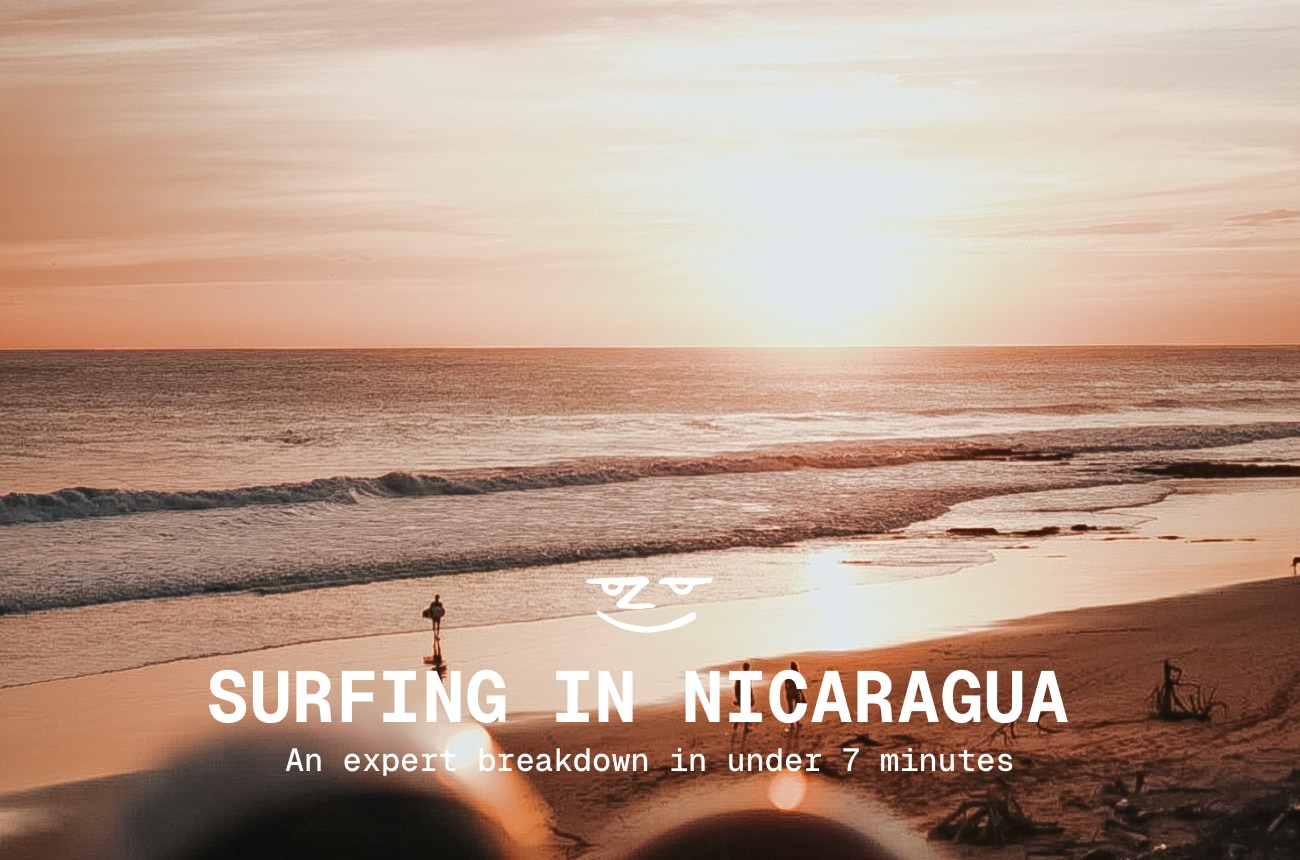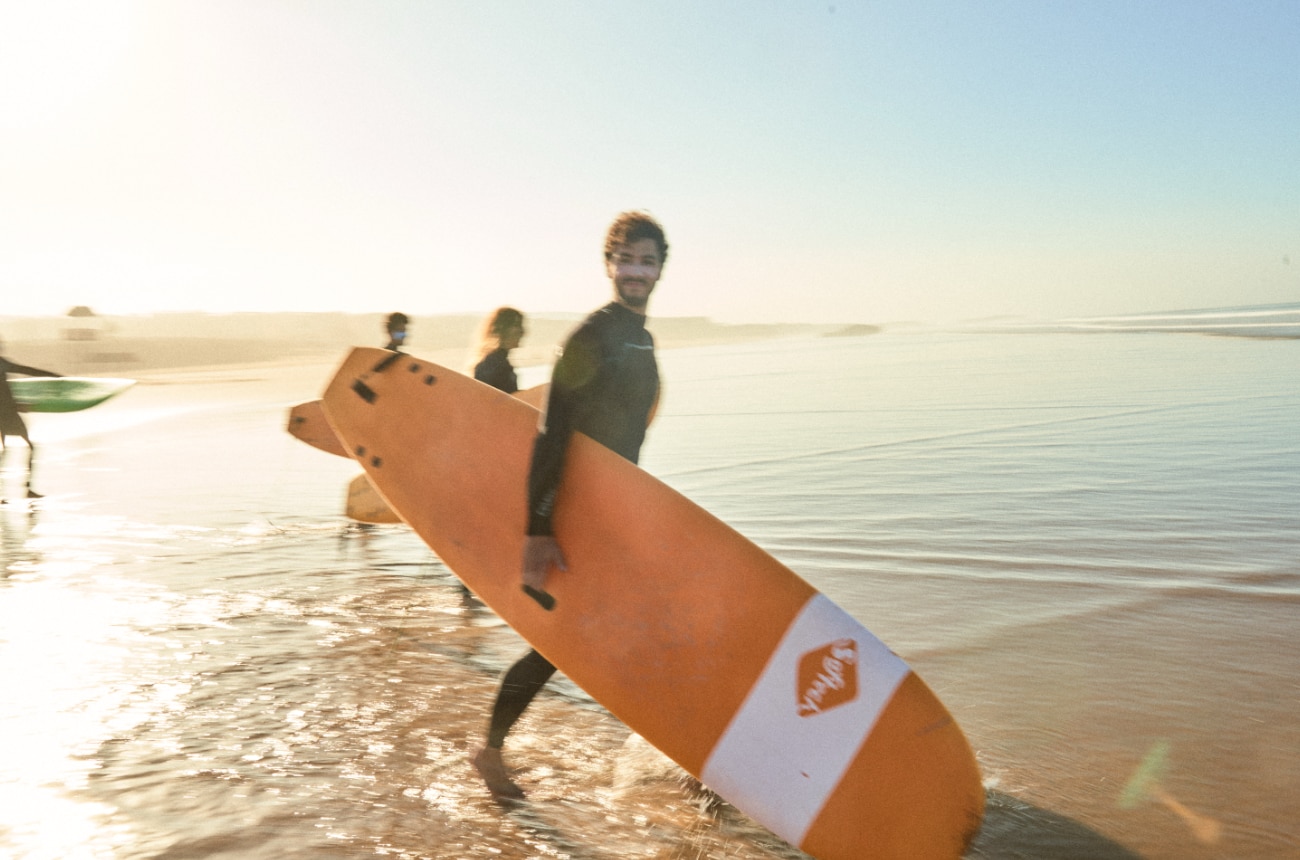Despite its growing popularity, a lot of surfers still aren't fully aware that surfing in Ghana is possible.
And apart from a brief cameo in Endless Summer plus a few mentions on various surf forums, the country's surfing scene remains largely unknown to most of the world.
On one side, this means it's still one of the few uncrowded surf destinations with decent waves and tropical weather. On the other, there's not a lot of information for surfers who want to visit.
Here's what you need to know about this West African surf nation.
A brief overview of surfing in Ghana

Ghana gained independence in 1957, steering clear of other conflicts in the region and developing a stable democracy based on its gold and cocoa resources.
As for the surf scene, it can be traced back to local fishing communities who used wooden boards to ride waves and catch fish.
Surfing as we know it today went through its first growth spurt in the 90s and early 2000s with the arrival of expat surfing pioneers and a few local surfers who picked it up while living abroad.
Organisations such as Surf Ghana and individuals like Mr. Brights (who we work with) ave since played a crucial role in promoting and developing surfing in the country.
Visiting surfers now have better access to gear, local knowledge and more importantly, epic waves. We always recommend consider bringing spare legropes/leashes, surf equipment or even surfboards to leave with and help the local surfing community.
If you'd like to donate surf equipment to Ghana, get in touch with us: through our partnership with Provide The Slide we collect surf material in Portugal to bring over to Ghana and other booming African surf communities.
Ghana climate and sea temperatures
Ghana sits by the Gulf of Guinea, which is slightly above the equator.
It's got a tropical vibe throughout the country, but the highlands are cooler and the coast is muggy.
The north of the country is hotter and drier, while the south is generally wetter and humid. Expect daily coastal temps of 27°C (80°F), but it can get much hotter.
As for sea temps, they hover around 25°C (77°F). This means you can enjoy warm water conditions all year round – no wetsuit necessary!
Ghana's waves and surf seasons

Ghana is an incredibly accessible surf destination, with regular flights from Europe to the capital Accra and domestic flights and buses to the coastal town of Takoradi.
The surf season runs from May to October, with consistent swells and offshore winds providing ideal conditions for all levels of surfers.
Waves range from mellow beach breaks suitable for beginners to more challenging point and reef breaks for experienced surfers. The tides are almost always under 1 metre, which means they only really affect beach breaks on smaller days.
Ghana's most popular spot is Busua Beach, a long stretch of sandy beach with a consistent left and righthand break. Other popular spots include Black Mamba, Mutrakni Point and Kokrobite.
Learn more about Ghana’s best surf breaks.
Surfboards, clothing and equipment
The waves in Ghana can vary, so it can be helpful to pack a range of boards.
A longboard or funboard is recommended for the smaller, gentler waves, while a shortboard or fish can fill the gaps between pumping and cruisy days.
It’s possible to wear boardshorts and bikinis, however, keep in mind that the Northern Region and parts of the Upper East/Upper West are home to larger-than-average Muslim populations, so dress accordingly.
As for day-to-day clothing, light and breathable fabrics are ideal due to the warm and humid climate.
A mix of closed and open footwear is also recommended as the terrain can be rocky and sandy. It's also important to bring plenty of sunscreen and insect repellent.
Tips for surfers visiting Ghana

- While not all vaccines are mandatory (besides yellow fever, which is compulsory for travellers over 9 years), it's recommended to at least get a hepatitis A and B vaccinations. Learn more about Ghana’s inoculation requirements
- It's also important to have travel insurance and check visa requirements before arrival
- English is an official language, but Akan is the most-widely spoken language in Ghana
- The currency is Ghanaian Cedi
- For those looking for a more cultural experience, there are opportunities to combine surfing with volunteering projects, such as teaching surf lessons to local children: get in touch with us and we'll put you in contact with the right organizations
- When you travel to Ghana we encourage you to bring over spare surfboards, leashes, fins and other surf material. If you would like to donate surf equipment to Ghana, get in touch with us: through our partnership with Provide The Slide we collect surf material in Portugal to bring it over to Ghana and other booming African surf communities.
- And don't forget to try some of the delicious local cuisine, including jollof rice, banku and grilled fish
In summary, surfing in Ghana offers a unique experience for surfers looking to escape the crowds and enjoy consistent waves all year round.
From its rich history of wooden boards to its warm waters and friendly locals, there's plenty to discover and explore in this West African surf nation!
Book a Ghana surf trip today








